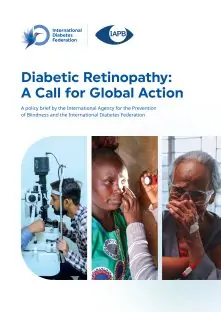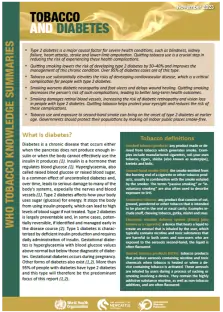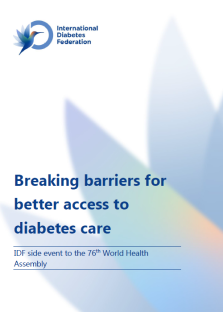
Policy brief
Diabetic Retinopathy: A Call for Global Action
A policy brief developed by IDF and the International Agency for the Prevention of Blindness (IAPB) that advocates for a joint approach to prevent and manage vision loss in people living with diabetes by integrating diabetic retinopathy (DR) care into diabetes policies and national health plans.
IAPB-IDF Policy brief - Diabetic retinopathy: a call for global action
pdf
4MB

Statement
WHO EB154 Constituency Statement: WHO’s work in health emergencies
Statement urging Member States to recognise people living with NCDs as a vulnerable population across WHO's work in health emergencies.
EB154 - Constituency statement on WHO work on health emergencies
pdf
292KB

Statement
WHO EB154 Constituency Statement: Universal Health Coverage
Statement highlighting the need to prioritise essential circulatory health services in UHC benefit packages to protect individuals and households from catastrophic out-of-pocket expenses.
EB154 - GCCH Constituency Statement on UHC
pdf
193KB

Statement
WHO EB154 Constituency Statement: follow-up on the prevention and control of NCDs
Statement highlighting the need for more political commitment, policy coherence and resources to address the NCD pandemic.
EB154 - Constituency Statement on HLM on NCDs
pdf
330KB

Policy brief
Tobacco and diabetes knowledge summary
A brief, jointly developed by WHO, the International Diabetes Federation and the University of Newcastle, that summarises the association between tobacco use and diabetes and describes the effectiveness of interventions to reduce tobacco use and tobacco-related complications.
Tobacco and diabetes Knowledge Summary
pdf
433KB

Report
Breaking barriers for better access to diabetes care
Report of the IDF side event to the 76th World Health Assembly held on 23 May, 2023 in Geneva.
Report IDF event WHA 2023
pdf
1MB
